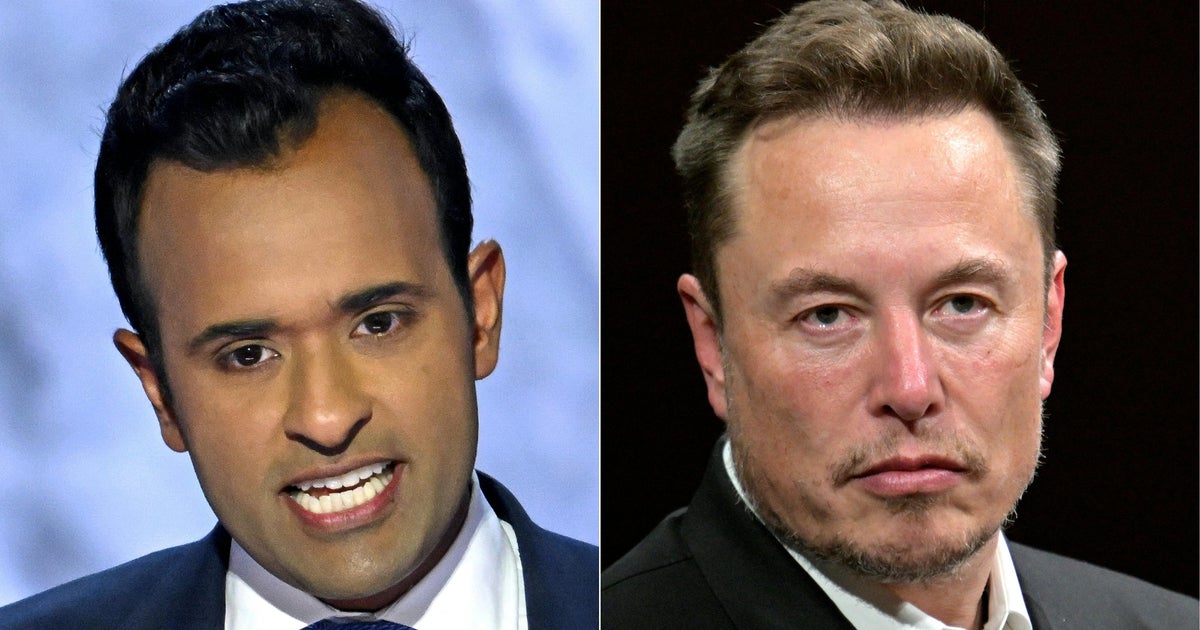Apple not the only one feeling the pain from U.S. trade war with China
President Donald Trump's trade war with China isn't only hitting Apple -- new data suggest it's taking a toll on the U.S. manufacturing sector as a whole.
The Institute for Supply Management, an association of purchasing managers, said Thursday that its closely watched manufacturing index fell sharply in December from the previous month to its lowest level in more than two years. The drop — the biggest in a decade — was worse than economists had expected. The cause? A slowdown in growth in the world's two largest economies -- the U.S. and China.
"The story here is that the trade war, coupled with China's underlying slowdown, is wreaking havoc in both countries," said Ian Shepherdson, chief U.S. economist with Pantheon Macroeconomics, in a note.
Companies seeking clarity
Apple on Wednesday pointed to trade tensions as one reason for weaker-than-expected demand for its flagship iPhone in China.
Although American manufacturers remain in good shape after a year of solid economic growth and healthy consumer spending, evidence that the manufacturing sector is cooling seemed to contribute to the malaise on Wall Street. Stocks were already tumbling Thursday, suffering another sharp decline the day after Apple cut its revenue forecast.
"The ongoing open issues with tariffs between U.S. and China are causing longer-term concerns about costs and sourcing strategies for our manufacturing operations," one manufacturer said in responding to the ISM survey. "We were anticipating more clarity [regarding] tariffs at the end of 2018."
The manufacturing index's drop "echoes the deterioration in the other manufacturing surveys and suggests that the slowdown in global growth is starting to take its toll on the U.S. economy," Andrew Hunter, senior U.S. economist at Capital Economics wrote in a note.
American consumers were already seeing some impact from the trade fight with China, with prices up for some items during the holidays. And they're likely to feel a bigger pinch in 2019. Walmart last year warned that prices could jump because of tariffs on Chinese imports. In recent weeks, companies reporting third-quarter earnings have also discussed raising prices if the trade battle escalates.
Not so easy to win
Mr. Trump and Chinese leader Xi Jinping agreed in December to a 90-day suspension of further tariff hikes in their fight over Beijing's technology policy, but left in place penalties already imposed. The U.S. Trade Representative's office has set a March 2 deadline for stepped up tariffs on $200 billion in Chinese goods.
On Thursday, one White House advisor signaled that trade wars may not be easy to win, as Mr. Trump has contended, after all. A "heck of a lot of companies" that do business in China will see a hit to their earnings until the U.S. and China negotiate a trade deal, Kevin Hassett, chairman of the Council of Economic Affairs, told CNN.
American trade negotiators want Beijing to drop requirements that U.S. companies share technology and other proprietary data, as well as cut tariffs on American goods. Mr. Trump has also pushed for China to lower its trade surplus with the U.S.
China isn't the only trade issue on the table. Congress also must approve a newly-negotiated trade pact with Canada and Mexico, while the Trump administration is considering whether to impose tariffs on auto imports. And existing tariffs imposed on steel and aluminum, solar panels and washing machines remain in place.
-- The Associated Press contributed to this report



